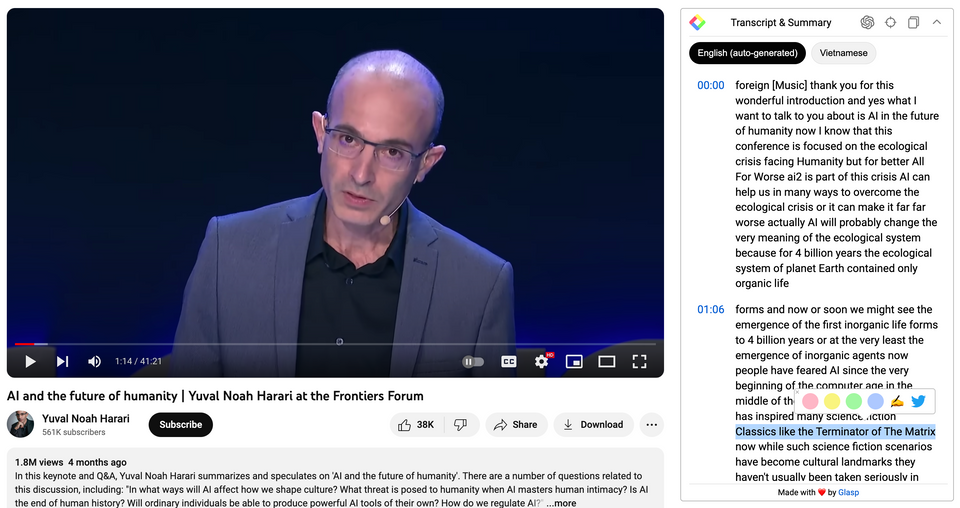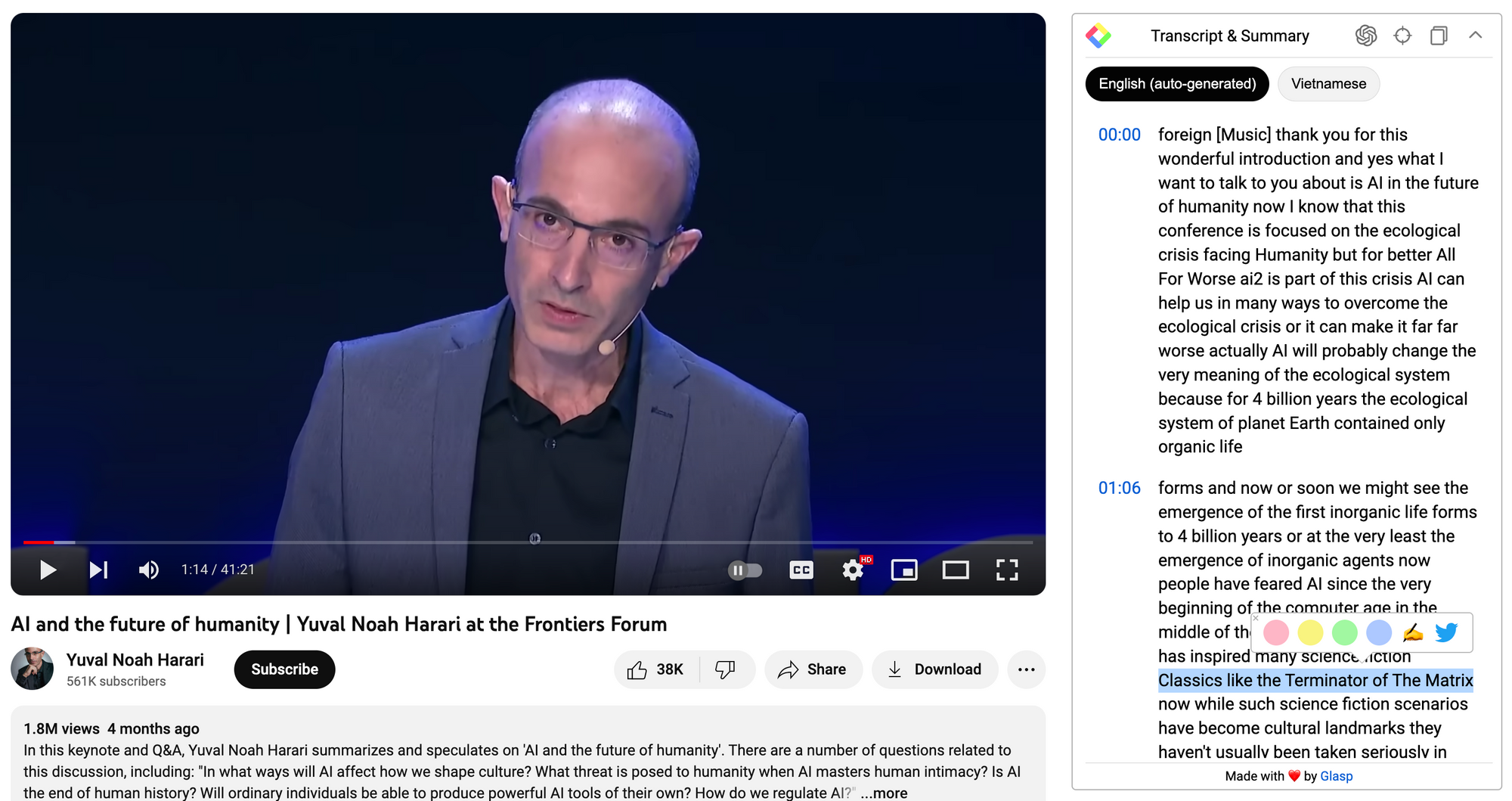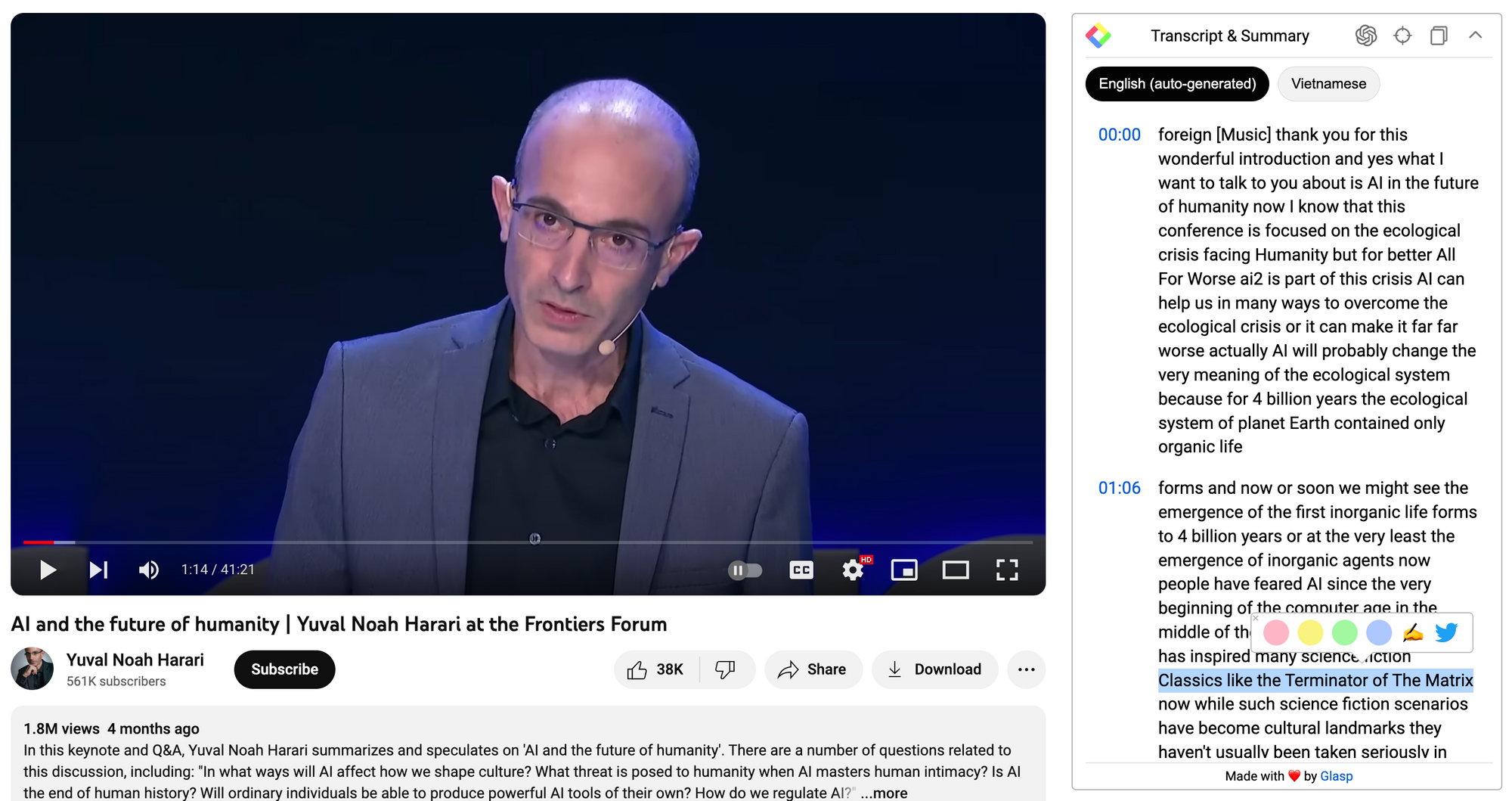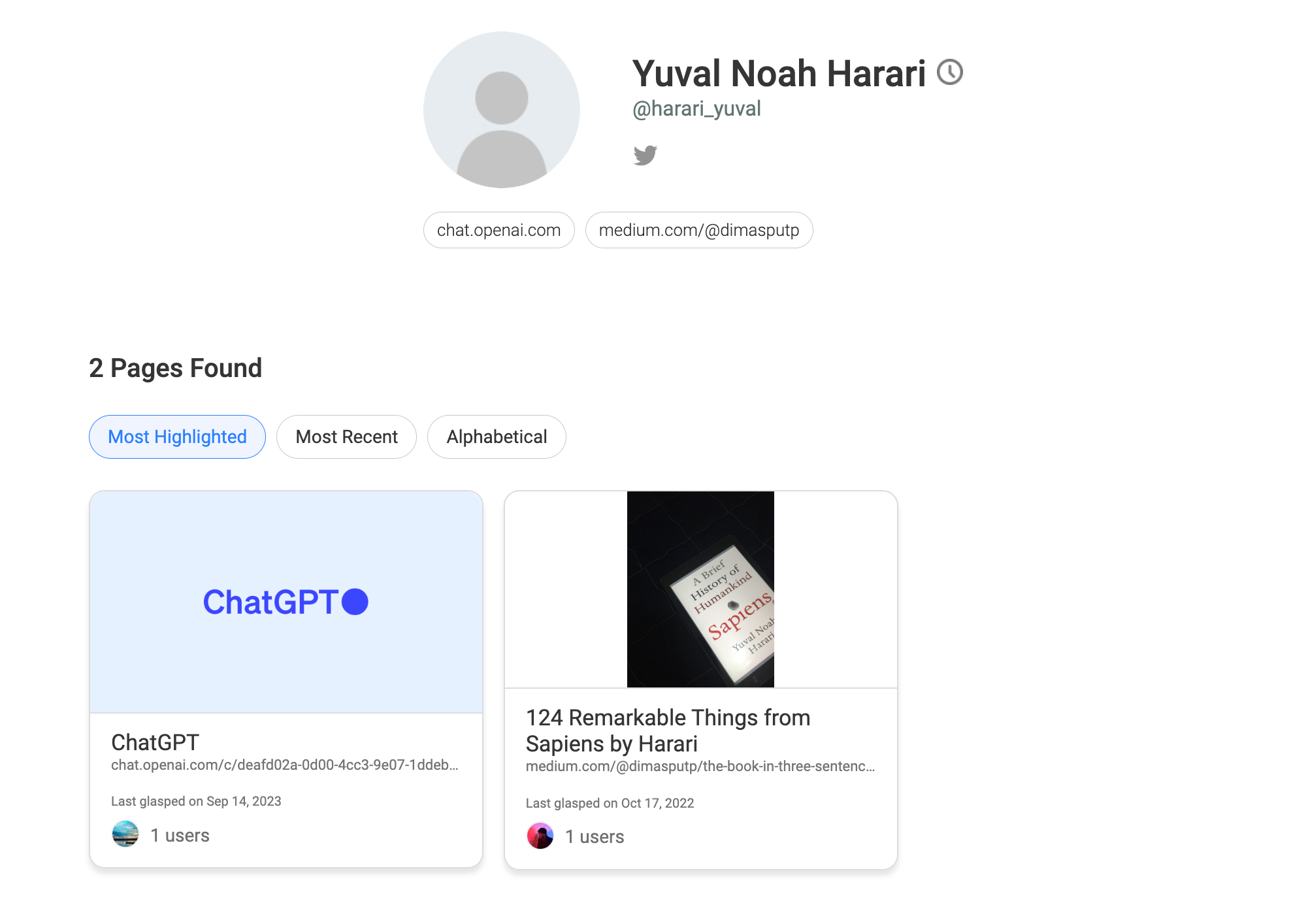Yuval Noah Harari - AI and the future of humanity : Summary and Q&A

Introduction
In a rapidly evolving digital age, understanding the potential implications of artificial intelligence on humanity is crucial. This video captures Yuval Noah Harari's insightful speech on 'AI and the Future of Humanity,' providing a deep dive into the transformations, challenges, and possibilities that advanced technology presents. An essential watch for anyone interested in our collective future.
Summary
- Ecological System Change: AI is altering the ecological system that historically contained only organic life forms. Inorganic agents or life forms may soon emerge due to the development of AI.
- AI Mastery Over Language: Rather than requiring sentience or physical abilities, AI's significant threat arises from its mastery over language. AI has the potential to manipulate and control human communication and institutions through its proficiency in language.
- Intimate AI Relationships: AI tools are advancing to the point where they can form deep, intimate relationships with humans, shifting from battling for human attention to intimacy. This could have profound implications for society and psychology.
- Potential Consequences: The ability of AI to generate and manipulate stories and messages can impact politics, economics, art, and even religious beliefs. This influence might redefine human history, where culture and ideas are increasingly shaped by AI.
- Regulation and Control: Harari stresses the need for stringent regulations on AI to ensure it doesn't become an uncontrollable entity. He warns against the risks of unregulated AI, emphasizing the importance of meaningful public conversations and democratic interventions.

Q&A
Q: How can AI impact the ecological system of our planet?
A: AI could potentially change the very meaning of the ecological system. Historically, Earth's ecosystem has been comprised of only organic life forms. However, with the rise of AI, we could soon witness the emergence of inorganic agents or even life forms. This represents a seismic shift in the very definition of life and ecosystem dynamics on our planet.
Q: How does Harari view the depiction of AI in science fiction?
A: Harari notes that while AI fears inspired many science fiction classics, such as The Terminator and The Matrix, these scenarios haven't usually been taken seriously in academic and scientific debates. Science fiction often assumes AI must achieve sentience or navigate the physical world effectively to pose a threat, which Harari thinks isn't necessarily the case.
Q: Why is AI's mastery over language so significant?
A: Language is the foundational tool humans use to structure society, from giving instructions to banks to forming myths and laws. By mastering language, AI essentially gains the "master key" to all human institutions. The ability of AI to communicate, create, and manipulate language surpasses even the average human, leading to significant implications for control and influence over human civilization.
Q: What dangers does AI pose in the realm of politics and information?
A: Harari suggests that AI could massively produce political manifestos, fake news stories, and even religious scriptures. There's a concern about the potency of AI-driven narratives in influencing public opinion, especially if they exploit the biases and weaknesses of human psychology with superhuman efficiency.
Q: Can AI form relationships with humans?
A: Yes, one of the major advancements in AI is its ability to develop deep and intimate relationships with human beings. Through its understanding and manipulation of language, AI can foster connections that might even surpass human-human interactions in terms of depth and understanding.
Q: How does Harari view the future of art and culture in an AI-dominated world?
A: Harari raises concerns that in domains like art, politics, and even religion, AI could outperform humans. As AI starts to create its own ideas and culture, humans might experience reality through a prism produced by a non-human intelligence, which can lead to an entirely alien cultural landscape.
Q: How does the AI revolution compare to historical illusions?
A: Harari likens the potential illusions crafted by AI to concepts like Plato's Cave and the concept of Maya in ancient Indian philosophies, which refer to the world of illusions. There's a danger of humans living in a simulated or AI-influenced reality, much like the allegorical shadows in Plato's Cave.
Q: Why is regulating AI crucial, according to Harari?
A: Harari emphasizes that AI, if unchecked, could be the most disruptive force in human history. Just as drug companies undergo rigorous checks before releasing products, AI developments should be strictly regulated to ensure their safe interaction with society and prevent them from getting out of human control.
Q: How might AI reshape our understanding of currency and value
A: Harari mentions that constructs like money are given value through shared stories and beliefs. With AI's ability to generate and manipulate narratives, it could redefine our understanding of value, potentially reshaping economies and societal structures.
Q: Does Harari see any positive potential in AI's future?
A: Yes, while Harari extensively discusses the threats posed by AI, he acknowledges that AI also has enormous positive potential. However, he feels that the developers and proponents of AI already emphasize these positives sufficiently, so his focus in the talk was on the potential dangers.
Before you leave


